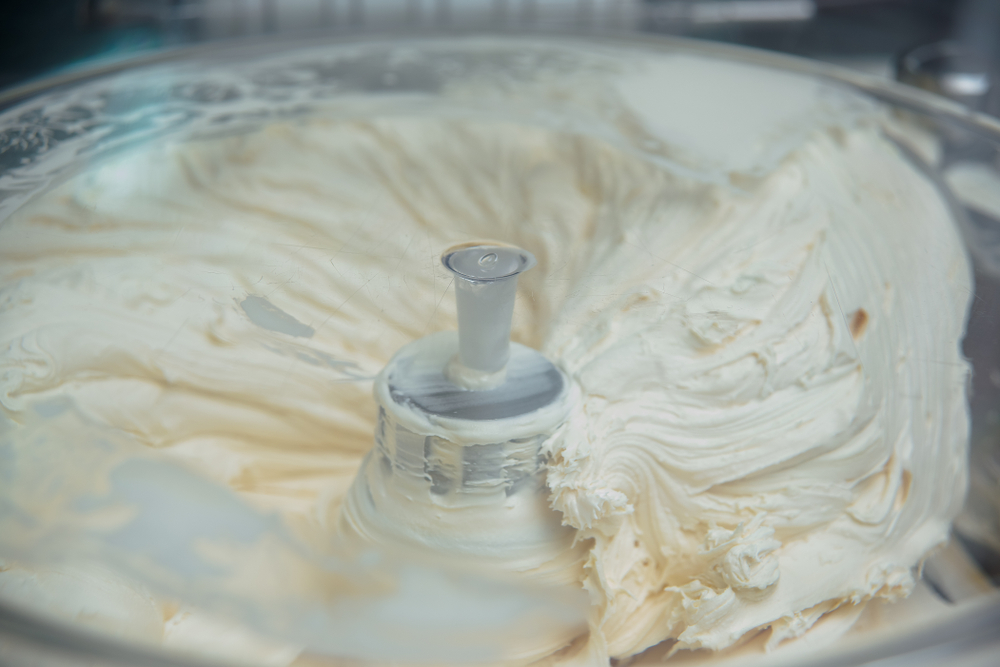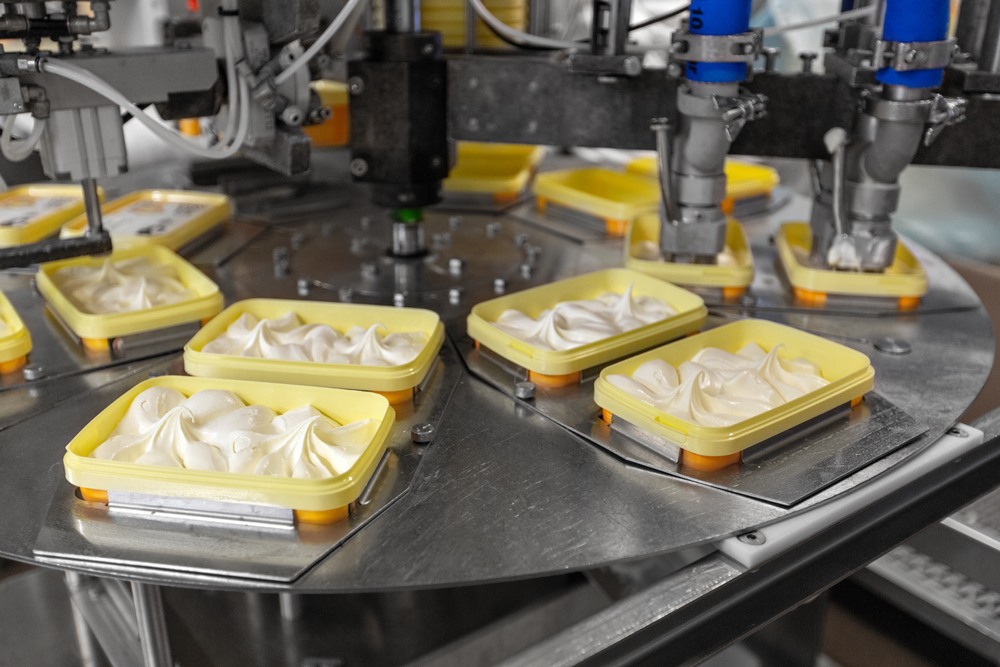Food safety is paramount in ice cream production, a treat loved by people of all ages. However, the process involves multiple steps that can pose significant risks if not managed correctly.
Maintaining stringent safety standards from sourcing raw ingredients to delivering the final product is crucial. Here’s an overview of the critical food safety concerns in ice cream production.
Critical food safety concerns in ice cream production
1. Ingredient sourcing and storage
– Milk and cream: these primary ingredients must come from reputable suppliers and be stored at appropriate temperatures to prevent bacterial growth. Improper storage can lead to pathogens such as Listeria monocytogenes, which can cause serious illness.
– Additives and flavourings: ingredients like fruits, nuts, and flavour extracts should be free from contaminants and stored correctly to ensure safety and quality. Contaminated ingredients can lead to outbreaks of foodborne illnesses.
2. Pasteurisation
– Temperature control: pasteurisation involves heating the ice cream mix to a specific temperature to kill harmful bacteria. For instance, the mix is typically heated to at least 68°C for 30 minutes. Accurate temperature control is essential to ensure that all pathogens are eliminated without compromising ingredient quality.
– Monitoring: continuous monitoring and recording of pasteurisation temperatures help maintain compliance with food safety regulations. This process is crucial for meeting standards set by authorities like the Food Standards Agency.

3. Mixing and freezing
– Sanitisation: equipment used for mixing and freezing must be thoroughly sanitised to prevent cross-contamination. According to industry standards, all equipment must be cleaned and sanitised before and after use.
– Rapid freezing: the mix should be rapidly frozen to prevent the growth of any residual bacteria and to achieve the desired texture. Rapid freezing reduces the risk of bacterial growth by quickly lowering the temperature of the product.
4. Packaging and storage
– Hygienic packaging: ice cream should be packaged in sterile conditions to avoid contamination. Any lapse in packaging hygiene can lead to post-production contamination.
– Cold chain maintenance: ensuring that ice cream is stored at the correct temperature throughout the supply chain is vital to prevent spoilage and bacterial growth. For example, ice cream should be kept at or below -29°C.
5. Employee training
– Hygiene practices: employees must be trained in proper hygiene practices, including hand washing, wearing clean uniforms, and using gloves when handling food. Proper hygiene practices reduce the risk of contamination from handlers.
– Safety protocols: training staff on food safety protocols and the correct use of equipment can significantly reduce the risk of contamination. Well-trained employees are better equipped to handle food safely.

Consultation and auditing
Ensuring food safety in ice cream production is crucial for protecting consumer health and maintaining product quality.
Expert guidance can help identify potential food safety hazards in production processes. Regular audits ensure compliance with both local and international food safety regulations, helping producers stay ahead of potential issues.
Training programs
Tailored training programs ensure that staff are well-versed in the latest food safety practices and protocols. This includes comprehensive instruction on hygiene practices and proper equipment handling.
Hygiene monitoring
Advanced monitoring systems can track and record critical control points throughout the production process. Early detection and mitigation of any food safety risks are crucial for maintaining high standards.
Certification support
Obtaining certifications such as HACCP (Hazard Analysis Critical Control Point) and ISO 22000 is vital for demonstrating commitment to food safety. These certifications help build consumer trust and ensure regulatory compliance.
Ongoing support
Food safety is a continuous process. Ongoing support and periodic reviews help businesses adapt to new regulations and improve food safety practices over time. Continuous improvement is essential for sustaining high standards and responding to evolving industry requirements.
By integrating these practices and partnering with companies such as Complete Food Safety, ice cream producers can ensure their products are safe, high-quality, and compliant with all necessary regulations. This not only protects consumers but also enhances the reputation and reliability of your brand.
For more information on how Complete Food Safety can assist your business, contact us today.

